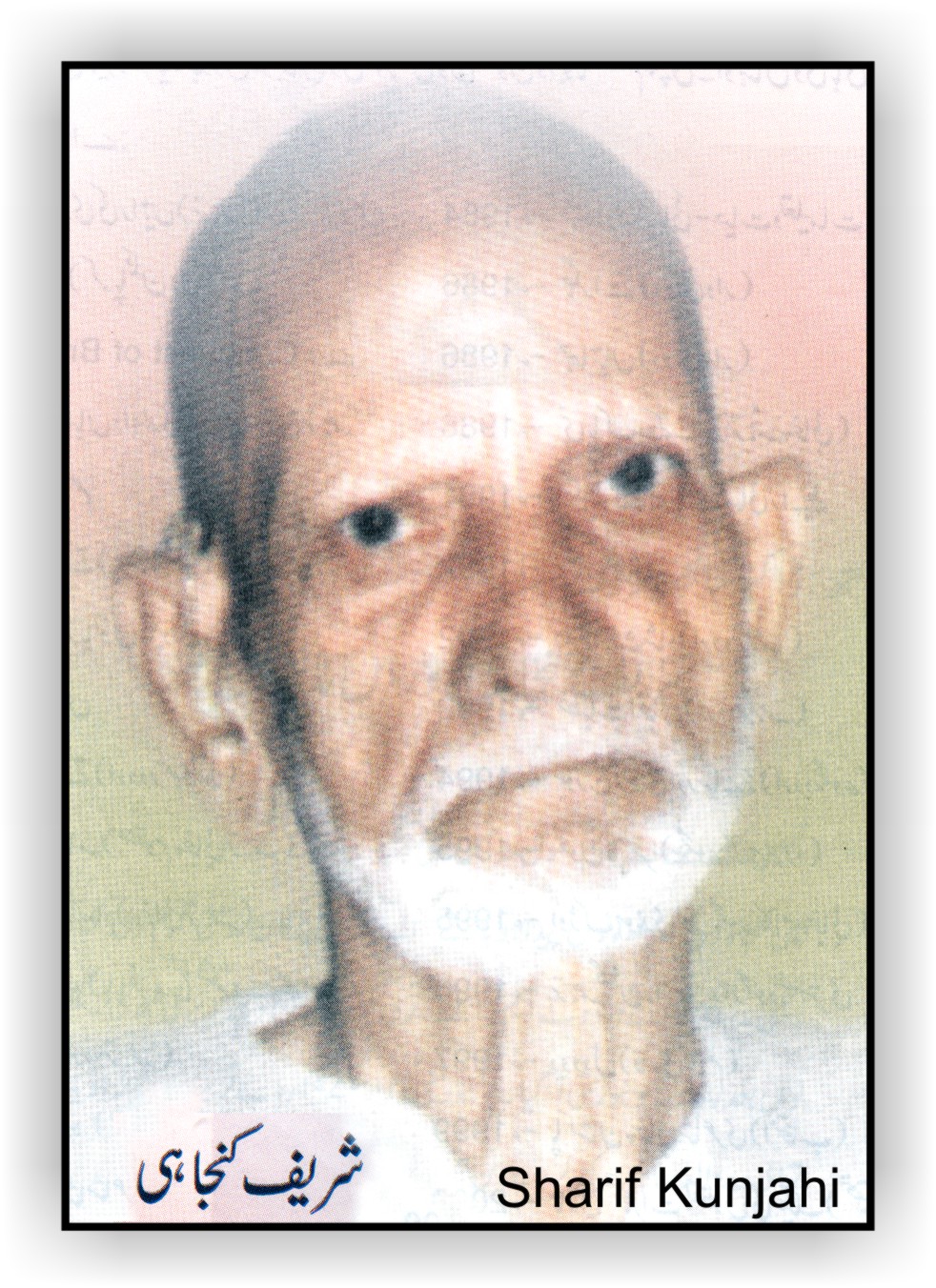The Ravi on Sharif Kunjahi - Shafqat Tanvir Mirza
 |
RAVI 2003 (Magazine of Government College University Lahore) editor Abdus Samee (Urdu), Saad Ahmad Dilshad (English): pp 406; published from the Government College University , Lahore .
THIS is the first issue of Ravi since the college was given the status of a university and with it, the magazine completes 92 years of its publication. The first issue was published in 1911. The issue under review includes a Punjabi section spread over 46 pages in which a special Gosha-i-Sharif Kunjahi has also been included and a tribute paid to a non-Ravian scholar. Other non-Ravian poets, Ahmad Faraz and Muneer Niazi, have also been honoured in the Urdu section.
Politician-cum-writer Fakhar Zaman, while paying tribute to Kunjahi, says the latter was a class fellow of his father, the late Maj Zaman. It was Kunjahi who attracted Fakhar to Punjabi. |
Before that, he started his literary career with Urdu poetry. In Fakhar's view, Sharif Kunjahi is one of the two major living Punjabi writers of the subcontinent, the second being Amrita Preetam.
It was Kunjahi who had brought Fakhar to Punjabi literary circles of Lahore in the mid sixties. On Kunjahi's recommendation, Fakhar was offered to preside over one of the sessions of Mela Shah Husain organized by the defunct Majlis Shah Husain, one of the most active organizations of Punjabi writers which used to arrange more than one session in the three-day mela at the national level in which Bengali, Urdu, Sindhi, Pashto and Kashmiri writers also participated. The late Hamid Ali Bela first emerged as a classy singer of Shah Husain's kafis from the platform of the Majlis.
The Majlis had enjoyed the support of Sharif Kunjahi as well as Ahmad Rahi, Ustad Daman, Muneer Niazi and others.
Kunjahi also started his literary career with Urdu poetry, and one of his poems against the Second World War was selected for the yearly anthology of the Halqa-i-Arbab-i-Zauq. With the passage of time, Sharif became more serious about Punjabi language and literature. Fakhar says he was much impressed by three Punjabi poets, Sharif Kunjahi, Amrita Preetam and Prof Mohan Singh Mahir whose books, Jagratey, Naveen Rut and Savay Pattar were very popular among the Punjabi readers of poetry.
The first-ever literary session with Sharif Kunjahi was also arranged by the Punjabi Group (later banned by the late Qudratullah Shahab, the then secretary-general of the Pakistan Writers Guild), in which Munnoo Bhai also presented a paper on Kunjahi which became a part of Jagratey published in Lahore.
Sharif Kunjahi, being a teacher, paid more attention to serious work such as criticism, modern translations and lexicography. He is credited with the first-ever collection of critical essays, Jhatian which proved a trendsetter in Punjabi criticism. Sharif Kunjahi translated Allama Iqbal's Madras lectures into Punjabi. He also translated some longer Persian poems of Iqbal into Punjabi verse for the Majlis-i-Tarraq-i-Adab. His latest job is the translation of the Holy Quran in free verse, published two years ago. Kunjahi has also compiled a short dictionary of Punjabi for the Department of Punjabi Language and Literature, University of the Punjab . He has two collections of Punjabi poetry to his credit. His biography, compiled by Prof Khalid Humayoon, has also been published. |